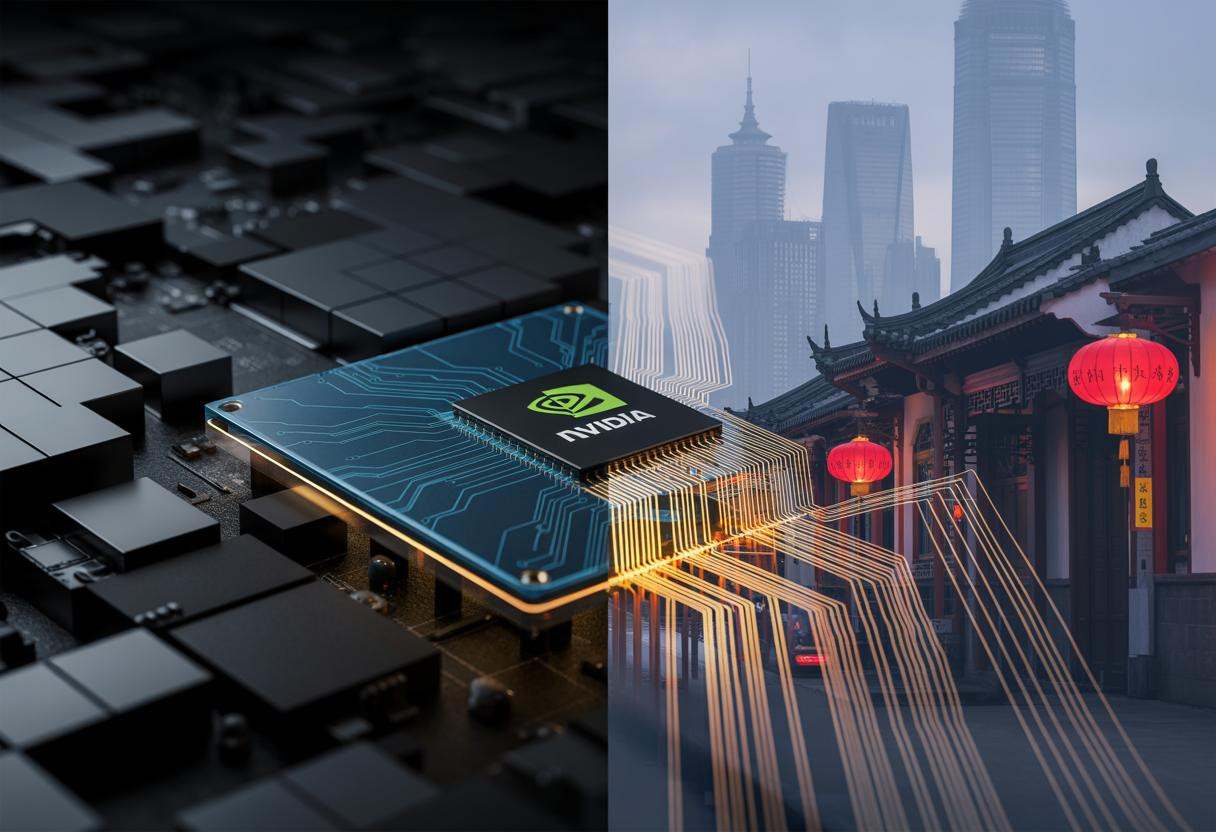Nvidia is shaking up the AI chip market with a strategic move that could reshape its presence in China. The tech giant is set to launch a more affordable version of its cutting-edge Blackwell AI chip specifically designed for the Chinese market amidst ongoing export restrictions. This budget-friendly Blackwell variant represents Nvidia’s determined effort to maintain its foothold in one of the world’s largest technology markets.
Why Nvidia needs a China-specific chip solution
Since U.S. export controls tightened, Nvidia has seen its Chinese market share plummet from a dominant 95% to roughly 50%. The new chip, priced between $6,500 and $8,000, offers a significant discount compared to the $10,000-$12,000 H20 model previously sold in China. This pricing strategy reflects Nvidia’s determination to remain competitive despite geopolitical challenges.
“This move is like a chess player sacrificing a bishop to protect their queen,” explains Dr. Maya Chen, semiconductor industry analyst. “Nvidia is willing to offer less powerful technology to preserve their market presence rather than abandoning China entirely.”
Technical compromises that satisfy export regulations
The China-specific chip makes several key technical compromises to comply with U.S. regulations:
- Uses standard GDDR7 memory instead of advanced high-bandwidth memory
- Based on the more modest RTX Pro 6000D architecture
- Avoids TSMC’s advanced CoWoS packaging technology
- Features intentionally reduced processing capabilities
These modifications ensure the chip stays below thresholds that would trigger export restrictions while still delivering valuable AI processing power to Chinese customers. Mass production is scheduled to begin in June 2025, giving Nvidia time to fine-tune its strategy as regulatory landscapes evolve.
Competing with growing domestic alternatives
As Nvidia adapts, Chinese competitors like Huawei are gaining ground. The domestic chip manufacturer is preparing to ship its new Ascend 910D AI chip, potentially further eroding Nvidia’s market position. This competitive pressure has transformed China’s AI chip market into what one industry observer calls “a technological petri dish,” where necessity is breeding rapid innovation.
“We’re seeing an acceleration in China’s domestic AI chip development that might not have happened without these restrictions,” notes Wei Zhang, tech policy researcher at Beijing University. “It’s like watching evolution speed up in real time.”
What this means for global AI development
The implications extend beyond business strategy. This chip launch represents the growing fragmentation of global technology development, with potential consequences for AI advancement worldwide. Much like the evolution of gaming platforms created distinct development ecosystems, we may see divergent AI technologies emerge.
The future of AI hardware innovation
This situation mirrors other technology adaptations we’ve seen recently:
- Similar to how Google’s Android XR glasses had to balance technical capabilities with market realities
- Reminiscent of how Motorola created competitive alternatives at lower price points
- Follows the pattern of AI development teams adapting to constraints
Will this strategy succeed long-term?
The success of Nvidia’s approach remains uncertain. Much like how intelligent adaptation is key to survival, Nvidia’s ability to evolve its products while navigating complex regulations will determine whether it maintains its leadership position or gradually cedes ground to emerging competitors. One thing is certain: the global AI chip landscape is being reshaped, with ramifications that will echo throughout the technology industry for years to come.
